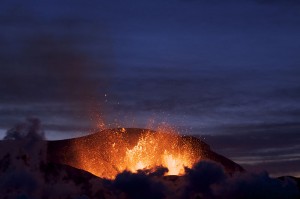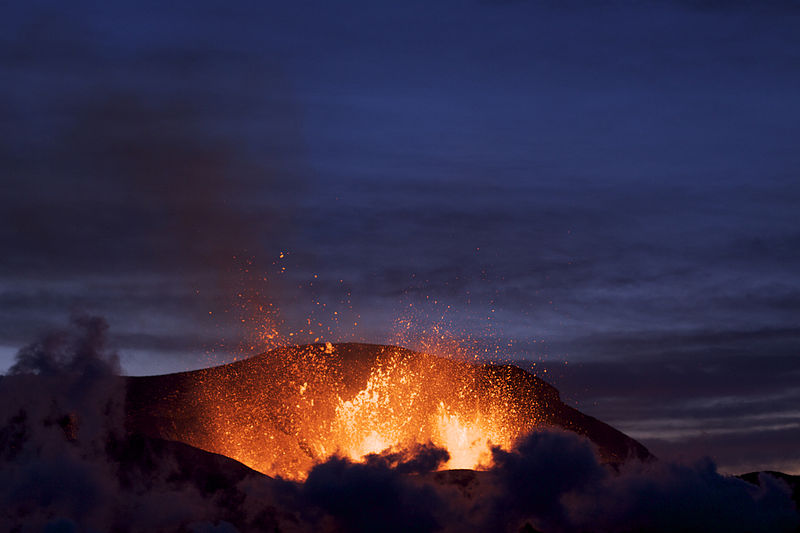
At the beginning of issue 6 of NOVAsia, Kyle DeRosa talked of humanity’s struggle against nature as a Sisyphean battle, never to be won. He implies that we should be pleased not by our success (which is illusory and fleeting) but rather by our continued efforts and resilience. However we are not in a position to represent humanity. As the privileged middle and upper middle classes who can afford higher education, our concept of the Sisyphean boulder is so drastically different to that of a shopkeeper in Port au Prince that any comparison is by nature unfair. The world has been captivated this past week, and continues to be as NOVAsia goes to print, by a spectacular natural disaster that is affecting the lives of hundreds of thousands, if not millions. But there have been no deaths. The damage (aside from that in Iceland) is confined to our wallets, and that is the boulder that we face.
Throughout Europe, and other parts of the world, families, tourists, business travelers, and anyone else looking to take to the skies is likely stuck. I have friends waiting in Kuala Lumpur, and co-workers trapped in Madrid, New York City, and Slovenia. Meetings have been cancelled and rescheduled, life has become ever so slightly inconvenient.Almost a full week has passed since the volcano Eyjafjallajökull erupted on Iceland. It has created what has been called the largest shut-down of air traffic since World War II. Europe has essentially come to a standstill, and if it were not for an extensive rail system, nobody would be moving anywhere. The airline industry has been losing close to $200 million per day, with the total losses being estimated at over $1 billion total so far, there are layoffs at some airports, and courier companies that rely on high-speed and efficient transport of goods are scrambling to find any way possible to keep business moving. The effect to the economy will be noticeable. There is however irony in the effect to the environment. Thanks to the massive plume of ash that is slowly and smugly making its way across the globe, the atmosphere has been spared over 1.3 million tonnes of CO2 due to savings in jet fuel, an amount that is more than the total annual emissions of many developing countries (not taking into account how much CO2 has been released from the volcano itself, but feel free to argue that straw man if you must).
This is a particularly northern hemisphere style of natural disaster. The contrasts to Haiti on a qualitative scale, and the emotional impact, are not even worth discussing. Clearly from a moral perspective the earthquake is more “important”. But looking at the hard numbers is worthwhile. The first obvious difference is in loss of life. Whereas not a single individual has died due to the volcanic eruption, the number of dead in Haiti reached up over 200,000 individuals. With such a huge discrepancy, comparison almost seems unfair and grossly sensationalist, but to ignore it would be an equal injustice.
The second major contrast is the economic impact and the likely compensation. While the airlines will surely fight tooth and nail with governments to get some sort of “bailout package” for their $1 billion plus in losses, Haiti has estimated its total damage at $7.9 billion. Although I by no means wish to downplay the importance of the substantial aid that has been promised (though not necessarily yet delivered) to Haiti, the fact that the airlines most certainly will get financial compensation from European governments is in some respects nauseating. The American banking crisis has set a precedent whereby a failed business model can run to governments for cash, and the governments will respond. The governments must respond; without the airlines functioning, trade will slow to a crawl, and economies will falter. Our boulders will suddenly take on much more mass. Of course this comparison is invalid. If an earthquake or tsunami struck a densely populated northern developed state (though this is unlikely, and being developed also a partial consequence of its unlikelihood) then there would almost certainly be deaths. But this does not happen to us. This happens to them. And when it happens to them, we mourn, we show support, and some of us even donate. But we quickly move on.
While the Sisyphean analogy is poetically apt, we should not be so culturally naïve as to believe that we are all the same Sisyphus. Our mountainside contains far fewer bumps, and has far more rest-stops and latte shops, than the mountainsides of the developing world. When this ash cloud “crisis” has ended, our boulder will be relatively light and comfortable once again. For the rest of the world, the struggle continues.
(Photo courtesy of Wikimedia Commons)

